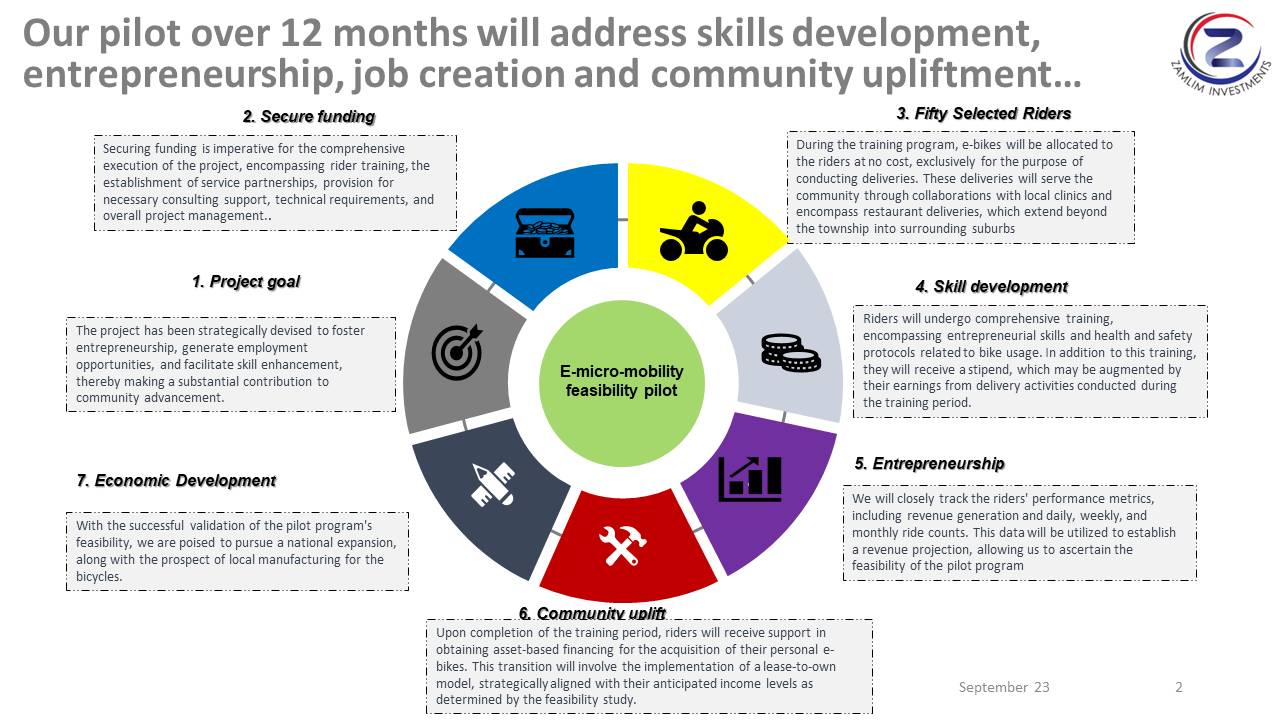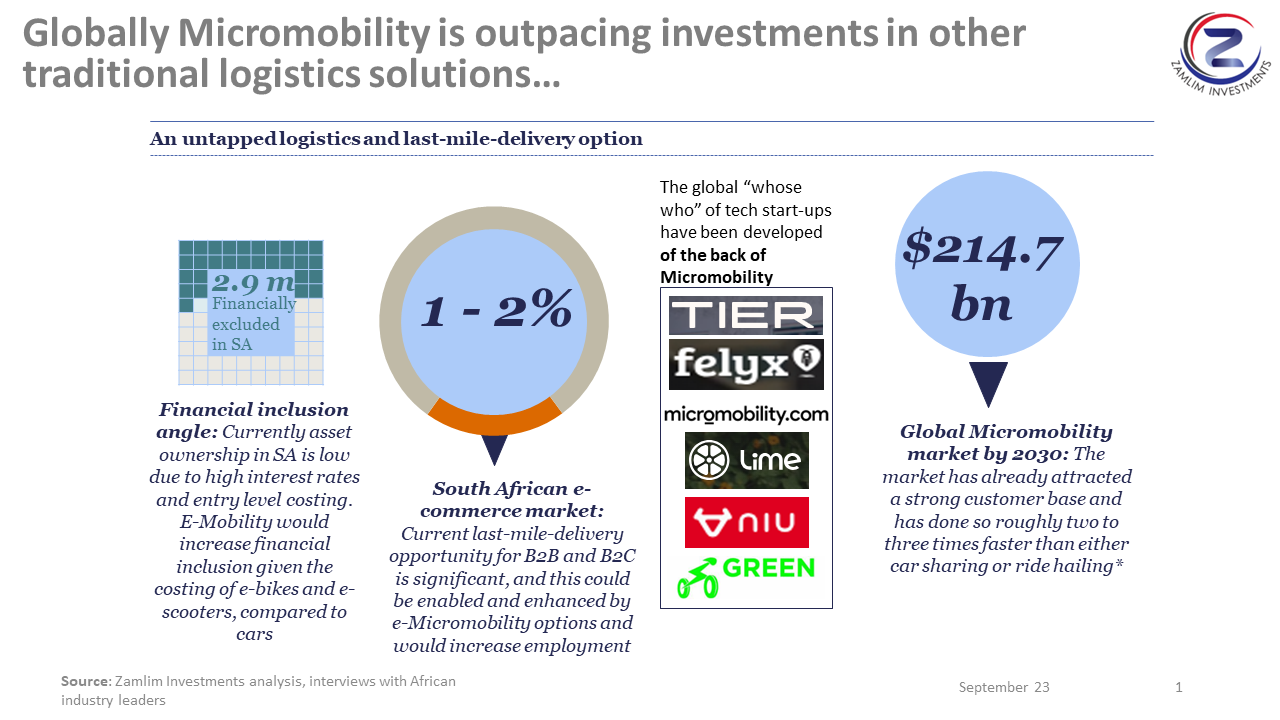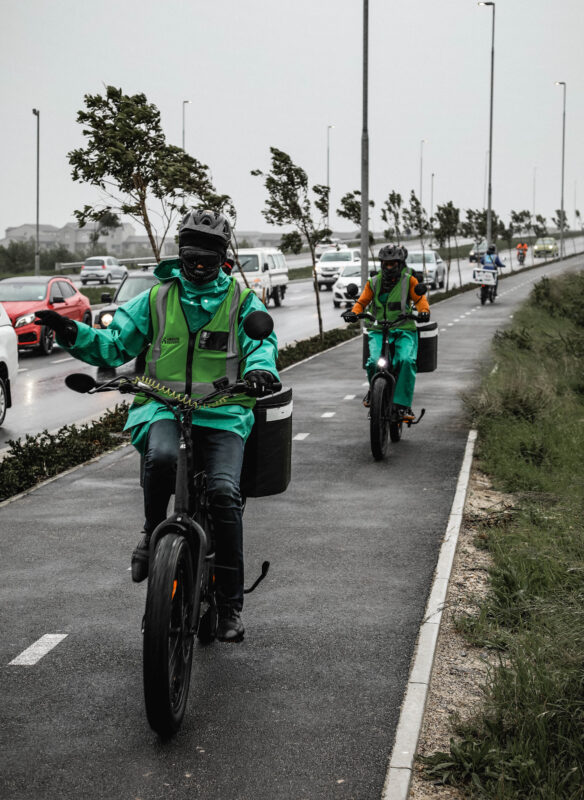Sign up for daily news updates from CleanTechnica on email. Or follow us on Google News!
The South African C&I solar sector is red hot right now. South Africa’s national power utility company Eskom reckons that there is now about 4,412 MW of solar PV installed in the South African C&I and residential sectors. That is 4.4 GW of distributed solar, and the good news is that about 3,000 MW of this was added in just over a year, from March 2022 to June 2023. It just goes to show how fast solar can be added to the power generation mix. There is still a lot of potential to scale things to even higher levels. There are still a lot of empty rooftops, carparks, and tracts of land available to unlock even more clean generation capacity.
Zamlim, a consulting, engineering, procurement, and construction firm (EPC) that is also a project developer, is now working to ramp up its operations in the C&I solar sector in South Africa. Its portfolio pipeline now includes firms such as large original equipment manufacturers of mining equipment and as well as the oil major fuel forecourts. The plans may also include battery storage on some of their customer sites as more corporates look to shield themselves from the never ending electricity rationing programme known as loadshedding.
Zamlim are also working with the South African Chamber of Commerce & Industry on a product called “Power For You,” which the Chamber of Commerce will offer to its members. The South African Chamber of Commerce & Industry has about 20,000 members and this kind of package will allow a more frictionless experience in these kinds of B2B transactions.
To facilitate a more comprehensive package for their prospective clients, the Zamlim consortium includes ENS Africa, which will handle the deal structuring for their clients, while Zamlim handles more of the EPC and business development. They also work with South Africa’s Department of Trade, Industry and Competition’s (DTIC) Energy-One-Stop shop. Zamlim’s anchor funder is the Industrial Development Corporation of South Africa, (the IDC).
Zamlim managing director Dzingira Matenga says “Our power security challenges in the Southern African Power Pool (SAPP), ironically presents a once-in-a-lifetime opportunity for our corporates to embed self-generation capacity and become self sufficient and over time add value to their businesses and lower their operating cost curve.”
Another area that is starting to get some traction in South Africa is the electric mobility sector. Sales of electric cars have doubled this year compared to the same period last year. 501 battery-electric cars were sold in the first half of 2023. However, asset ownership in South Africa is lower than similar markets due to high interest rates and entry level costs, especially for larger vehicles like cars, vans, and pickups. Micromobility presents a more inclusive opportunity especially for the youth and in the last mile delivery and logistics sector. Smaller electric vehicles such as electric bicycles and motorcycles can play a key role in increasing access to transport solutions given the costing of e-bikes and e-scooters, compared to cars. Therefore, Zamlim has focused on electric bicycles with a strong focus on financial inclusion.
Although there are now quite a few players in the e-bike sector in South Africa, a lot of people just cannot afford to buy electric bicycles. In order to get more people to afford micromobility options such as e-bikes for personal and commuter use as well as commercial use them in the last mile delivery sector, there needs to be elements that enable this financial inclusion, including flexible payment models along with other innovative approaches. Zamlim is currently working with a top four bank in South Africa to develop a model that transitions e-bikers from renters to owners, via a lease-financing product.
The opportunity in the last-mile-delivery B2B and B2C segments is significant. To help catalyze this process which will also help decarbonize the last mile delivery sector, Zamlim and its partners are designing the roll-out of a pilot project in Alexandra, Johannesburg. During the pilot, about fifty people from the underprivileged neighborhood of Alexandria Township will be issued with electric bicycles to deliver e-commerce products around Northern Johannesburg. Zamlim and its partners will use this pilot phase to track the performance of the bikes and battery swap stations as well as data associated with the delivery service.
After the pilot, they will use the data and findings to raise more funding to scale up the project as well as work with government on key areas such as policy around the e-bikes and the rest of the ecosystem. Areas to be looked at include introduction of more bike lanes as well as road safety, among others. They will also look into the economic opportunities for South Africa, including the value to be potentially realized from increasing the local manufacture of these electric bicycles, batteries, and battery swapping and charging centers.
The team will also commission a detailed financial and economics study and use this to:
- Appropriately size larger scale e-bike roll-outs across South Africa.
- Define battery limits for a South African e-bike industry (economies of scale and captive market) versus additional downstream plays for the SA private sector (e.g., local manufacturing).
- Use design inputs from technical study to refine capex requirements and return metrics.
For the pilot, Zamlim is working with Greenriders. The pilot will start with two sites, one in Alexandria township where the riders will be trained, and a battery swapping center will be hosted in a suburban location to be in close proximity to the customers they will be serving. Some of the proposed customers include the Department of Health, township restaurant owners, Uber Eats, and Mr. Delivery. I am looking forward to seeing this pilot progress, as well as the final results and recommendations from the program.
Have a tip for CleanTechnica? Want to advertise? Want to suggest a guest for our CleanTech Talk podcast? Contact us here.
EV Obsession Daily!
I don’t like paywalls. You don’t like paywalls. Who likes paywalls? Here at CleanTechnica, we implemented a limited paywall for a while, but it always felt wrong — and it was always tough to decide what we should put behind there. In theory, your most exclusive and best content goes behind a paywall. But then fewer people read it!! So, we’ve decided to completely nix paywalls here at CleanTechnica. But…
Thank you!
Tesla Sales in 2023, 2024, and 2030
CleanTechnica uses affiliate links. See our policy here.






